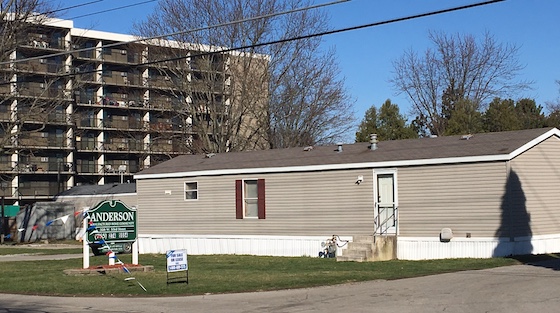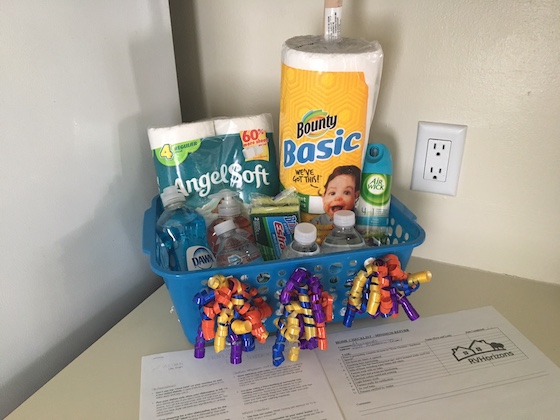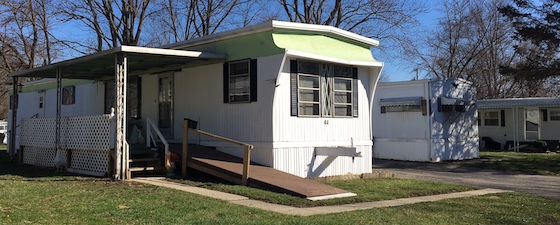We drive mobile home parks all the time. These drives often include multiple stops, driving at night, and unfamiliar routes. As a result, we are addicted to our GPS. We use it to predict arrival times and to keep us going in the right direction. But it also gives us infinite piece of mind to know that we are making the right turns, and not missing that essential exit number in a rainstorm. To us, budgets are just like that GPS. They keep you on the right path and give you a sense of security and well-being.
A tool you can trust
We don’t know who invented the GPS concept. We don’t even really know how it works. But it’s never let us down. And the same is true of using a budget. Even the ancient Egyptians utilized budgets to build the pyramids and to analyze taxation – it goes back to the beginnings of time. We have never heard of a budget – properly constructed – that did not give out the fair and impartial performance results desired. Can you trust a budget as the ultimate analytical tool? Absolutely.
A huge value – it’s essentially free
Once you buy a GPS, it’s free to use. You don’t even have to buy a budget. If you want to do it with pen and paper, or on your laptop, then it’s zero cost. But if you want utilize more extensive software, there might be some small additional expense. But budgeting is essentially a low-cost initiative and, therefore, there is no reason for any community owner to be lacking a decent budget to work from.
Guidance on all decisions
When we’re driving down the highway, and we want to go to McDonalds, we know roughly where the highway is to get back on our route. Budgets can give your mobile home park a similar sense of direction. If you are behind on your occupancy budget, and a customer walks in and offers you cash for a home that’s a little less than you’d hoped, you’re still going to take it, while you might not be so desperate if you were ahead of your budget. The budget can serve as a higher authority even if you own the mobile home park yourself, as you can say “that doesn’t really fit my budget” and everyone knows that that means.
But make sure they are reasonable
While budgets are a terrific tool, they are a disaster if they are not built from accurate expectations. If you plug “Nash, Oklahoma” into your GPS you will never end up in “Nash, Texas”. One of the biggest mistakes that many park buyers make is to “engineer” the deal by over-estimating the revenue and underestimating the expenses. That can turn a predicted $50,000 of net income into $70,000 on paper. But you’ll never hit those estimates, and you’ll miss your budget every month. Worse yet, you’ve fooled yourself into believing that you can hit those values, and overpaid for the property.
Don’t re-set them
If you change the destination in the GPS constantly, you eventually lose track of where you actually wanted to go. Budgets are the same. If it turns out that your estimations were completely off-base, then don’t change them immediately. Because you need to know how bad you missed the target and that will keep you prepared for the ramifications from that. The U.S. government is the worst at this. With every budget shortfall, they simply raise the budget again. That’s why the Federal Debt has risen to close to $20 trillion. They would have been better off never having changed the budget, and that would have put a greater sense of urgency in balancing the books.
Select a frequency that is a good use of time
So how often do you check your budget vs. actual performance? For most park owners, the correct time frame is monthly. Daily would be overkill and not an efficient use of time. But annually is way too far apart – by the time you figure out your problems you missed out on an entire year of time to fix them.
Have a consistent method of analyzing your budget vs. actual.
Most park owners call this the Budget/Actual/Difference meeting or B/A/D. Here’s the typical structure. You have your budget in one column. You have your actual performance in the second column. You have the actual dollars and cents impact in the third column. Many park owners augment this with a yellow highlighter on anything that went wrong over a set dollar amount (maybe $100). This will focus you on the biggest problems easily and visually. The sum of your successes vs. budget (positive cash) will be offset by your failures (negative cash) and their total is the amount you errored from your budgeted goal.
Be honest with yourself and admit your failures
There’s nothing worse than the park owner that won’t admit they screwed up. They rationalize, they argue, they waste a ton of time instead of focusing on fixing the situation. It’s like an alcoholic – they can’t make progress until they admit they have the disease. Admitting you made a mistake does not make you any less of a person. Everyone has done it, from Warren Buffett to Walmart (don’t forget those 150 Walmart Neighborhood Markets that they had to shut down recently as a total failure).
There is always a path to redemption
One nice thing about a GPS is that, nobody where you are, it can still get you back – even if you just drove 1,000 miles in the wrong direction. If you have missed your budget by a huge margin, you can still win the game if you can beat the budget an equal amount going forward. Redemption is always possible as long as you know the path to redemption. The worst thing you can do, if you fail to meet your budget, is to throw it away. Never, ever, abandon your budget – that’s the worst thing possible. Acknowledge what went wrong, and what you have to do to make it back, even if it takes years to accomplish.
Conclusion
A simple budget is one of the most powerful tools in the mobile home park sector. If you want to succeed, then you have to persistently adopt and use one. Buying and operating a mobile home park in the absence of a budget is as crazy as owning a GPS and not using it on a long drive.








